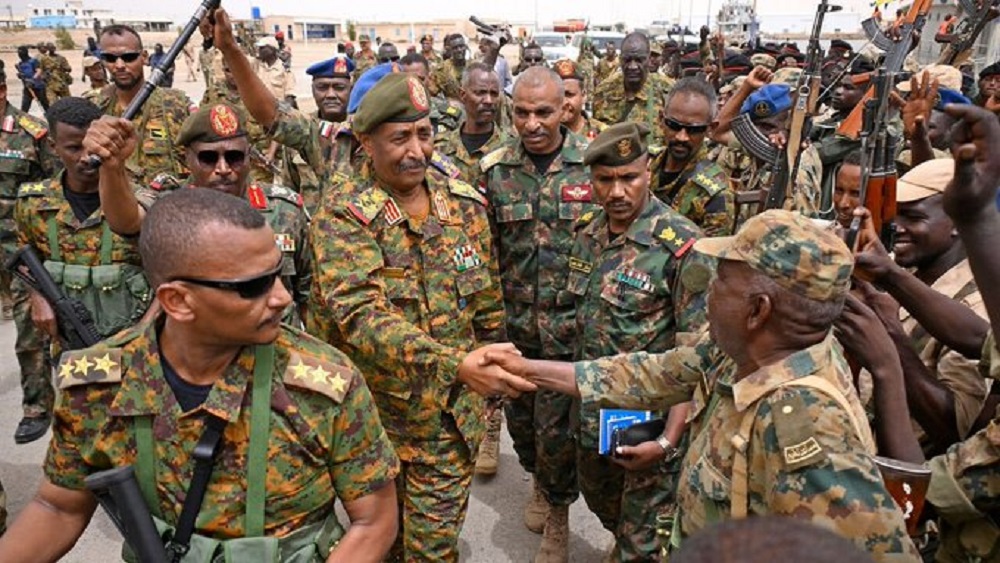Watan-In what has been described as a defining moment in Sudan’s modern history, the Sudanese army—led by General Abdel Fattah al-Burhan—announced full control over the Republican Palace in central Khartoum, following two years of bloody war with the Rapid Support Forces (RSF) militia, long accused of receiving support from the United Arab Emirates (UAE) under the leadership of Mohammed bin Zayed.
Leaked videos and footage from the ground, which quickly went viral on social media, captured the moment army forces entered the palace to chants of “Khartoum is free”—a scene long awaited by the Sudanese people. For the first time since the war began, al-Burhan addressed the nation from inside the symbolic seat of Sudanese sovereignty, declaring the “end of a foreign-backed militia’s betrayal and rebellion.”
The RSF, led by Mohammed Hamdan Dagalo (Hemedti), has not only been a domestic adversary, but also a proxy for external agendas, according to Khartoum’s direct accusations against Abu Dhabi. Sudanese officials allege that the UAE supplied the RSF with weapons, funding, logistical support, and intelligence, in an attempt to expand its regional influence over a country rich in natural resources.

Today, Khartoum represents more than just a military victory—it signals the defeat of a broader project to fragment and dismantle the Sudanese state. The UAE government, previously accused of backing South Sudan’s secession, now faces similar accusations of fueling unrest in Darfur, allegedly supporting efforts to establish a parallel government backed by Gulf actors in Kenya.
But the Sudanese army, buoyed by broad popular support, has flipped the script. Sudan is fighting not just a war on the ground, but a battle for sovereignty and national decision-making—against regional powers seeking to install loyal proxies in the Horn of Africa.
The question now is: Will the UAE stand down after this strategic setback, or will new confrontations emerge between Sudan’s military leadership and the power centers in Abu Dhabi? One thing is certain:
Khartoum is free—no solace for the House of Zayed.
